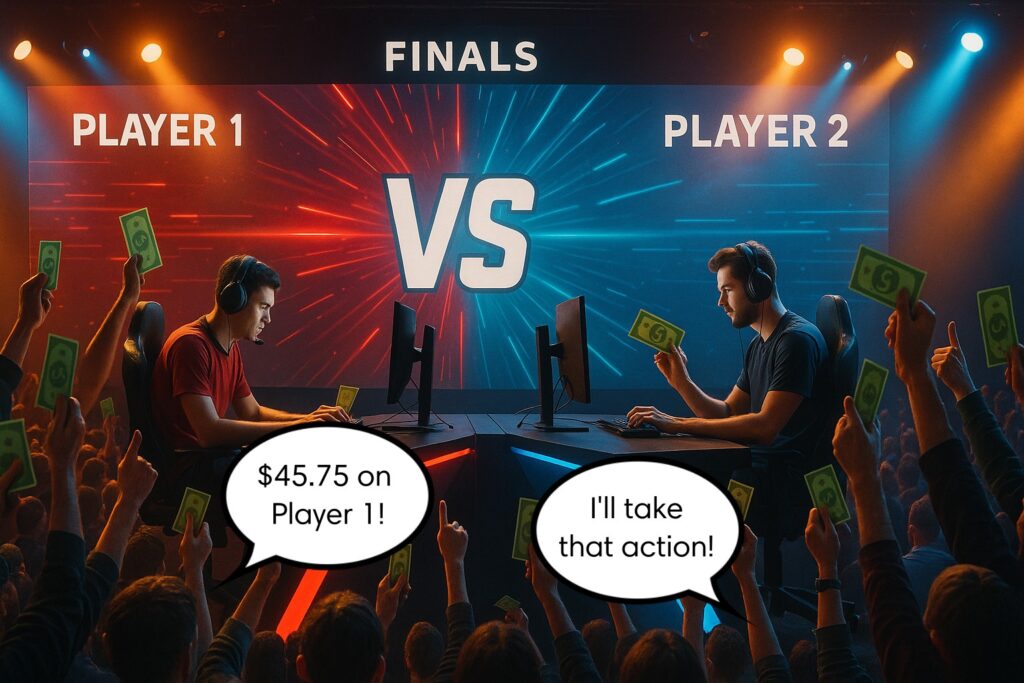In this week’s GME3, we’re looking at an update on the status of Alberta’s Bill 48 (the iGaming Alberta Act), an investigation by the Ontario Securities Commission into the growing influence of financial influencers, or “finfluencers,” and a report detailing the rise of esports betting over the course of 2024. Read the full stories below!
Gambling
Saddling Up for Slots
Alberta’s push toward a regulated commercial online gambling market is gaining momentum with Bill 48, the iGaming Alberta Act, passing second reading in the provincial legislature. While it wasn’t debated during the session, the bill now moves to the Committee of the Whole, where members will examine it clause by clause and consider amendments. This stage will be critical in shaping the final version of the legislation before it advances to third reading and potential approval.
Bill 48 aims to establish a regulated online gaming market similar to Ontario’s. It would create the iGaming Alberta Corporation as the conduct-and-manage entity. At the same time, the Alberta Gaming, Liquor and Cannabis Commission (AGLC) would serve as the regulator, while also operating the government-run Play Alberta platform. Private operators will have the opportunity to register with AGLC and sign agreements with the new corporation, operating under a yet-to-be-defined regulatory framework.
The bill proposes a centralized self-exclusion system to support responsible gambling. However, many key details remain undefined, including tax rates, licensing fees, operator requirements, and player protections. Critics, including Alberta’s NDP, have called out the lack of specifics, comparing the bill to buying a car without knowing if it has brakes.
Further clarity is expected later this year following consultations with Indigenous groups and industry stakeholders.
Media
Clout Over Caution
The Ontario Securities Commission (OSC) has raised red flags about the growing influence of financial influencers – or “finfluencers” – on retail investors. In a newly released report, the OSC revealed that a significant portion of the investing public is acting on advice from social media personalities, with 35% of surveyed investors admitting they’ve made financial decisions based on such input.
While the OSC doesn’t claim these influencers act maliciously, it warns that their guidance may not be in investors’ best interests. Finfluencers often present themselves as relatable and accessible, offering free advice that appears low-risk. Yet their motivations may be tied to personal profit rather than sound financial strategy.
The survey, which gathered responses from 665 investors, found that 40% view finfluencers as generally trustworthy. However, OSC data shows that those who make major financial decisions based on influencer content are 12 times more likely to fall victim to scams.
To explore the depth of this trust, the OSC conducted a controlled experiment where over 1,000 social media users viewed a simulated finfluencer post – 40% proceeded to make an investment decision based on the content.
The OSC’s message is clear: while finfluencers may be popular, unverified financial advice can carry significant risk.
Entertainment
Wagering With Wallhacks
Esports has begun to undergo a significant change as betting on competitive gaming has surged. According to a report from Oddin.gg, esports betting volume more than doubled year-over-year, with average bet counts up 83% and average wagers hitting €29 (~CAD $45.75), nearly six times higher than the average football bet.
This growth wasn’t just about more fans placing bets, it was about how they bet. Key titles like League of Legends, Counter-Strike 2, Dota 2, and Valorant all saw major volume increases. Valorant led the pack, with betting volume up 175% and live betting soaring 368%, driven by expanded leagues, looser rules on sponsorships, and a record-breaking championship.
Operators also saw a shift toward more personalized betting. Interest in player-focused markets rose sharply, especially in Counter-Strike 2, as star players gained celebrity-like status. Advances in real-time data now allow for deeper, more engaging wagers tied to individual performances, not just match outcomes
Oddin.gg’s message is clear: esports betting is no longer niche. With a young, mobile-first audience, operators who invest in tailored, fast, and interactive experiences will be best positioned to grow. Those who treat esports like traditional sports betting risk missing out on one of the industry’s fastest-growing verticals.
GME Law is Jack Tadman, Lindsay Anderson, and Will Sarwer-Foner Androsoff. Jack’s practice has focused exclusively on gaming law since he was an articling student in 2010, acting for the usual players in the gaming and quasi-gaming space. Lindsay brings her experience as a negotiator and contracts attorney, specializing in commercial technology, SaaS services, and data privacy.
At our firm, we are enthusiastic about aiding players in the gaming space, including sports leagues, media companies, advertisers, and more. Our specialized knowledge in these industries allows us to provide tailored solutions to our clients’ unique legal needs. Reach out to us HERE or contact Jack directly at jack@gmelawyers.com if you want to learn more!
Check out some of our previous editions of the GME3 HERE and HERE, and be sure to follow us on LinkedIn to be notified of new posts, keep up to date with industry news, and more!




